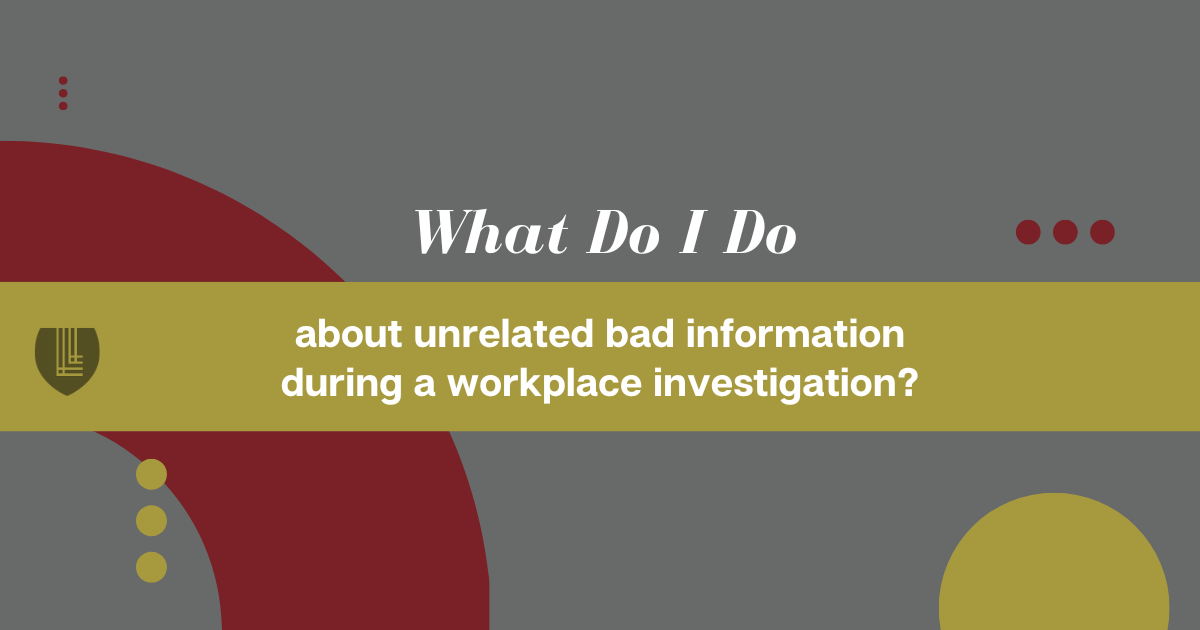
What Do You Do If You Stumble Across Some Unrelated, Bad Information?
Natalie Lynch is your credentialed investigator and licensed attorney, not a vlogger.
What do you do if you stumble across some unrelated, bad information?
You tell the client, for sure. You document that you told the client, for sure. As a business practice, you make sure the client understands the value of what you uncovered for them.
As an example, I was working in a healthcare environment, and there was a nurse who had a lot of people convinced she was a victim, and she wasn't. She really wasn't, and so it was really a hard call for the client to decide what to do about it.
But along the way, I found out that she violated some federal recording laws, so she didn't record some things, and it had some really negative effects for our vulnerable population. Totally unrelated to the case, but I stumbled across this information as part of my investigative process.
Well, that information was invaluable, because it kept the entire employer operating. Had the federal government found that out in their own time, on their own audit, that would have been devastating for the jobs of all of those people at the employer.
But, at the end of the day, I was there to investigate a thing. Even after I stumbled across some evidence, I wrapped up my investigation and made my investigative results. On the side, the client was so thankful that I had been thorough enough to stumble across this other evidence.
In other cases, it's more related, and so sometimes the way that I'll document it is by making a second, often much briefer, in-report. It'll say things like, "This isn't a full investigation, but I did stumble across this evidence. Three people told me this. So it was consistent enough to talk about.” Or I'll do it within the same investigative report.
I'll have an “other issues” section, and the reason I'll do it in an “other issue” section is that: if a litigator ever has to get ahold of it, it is very easy for them to get permission to redact an other issue section – because it is so clear that it's unrelated to the crux of the investigation.
For more legal investigative advice, like and subscribe.